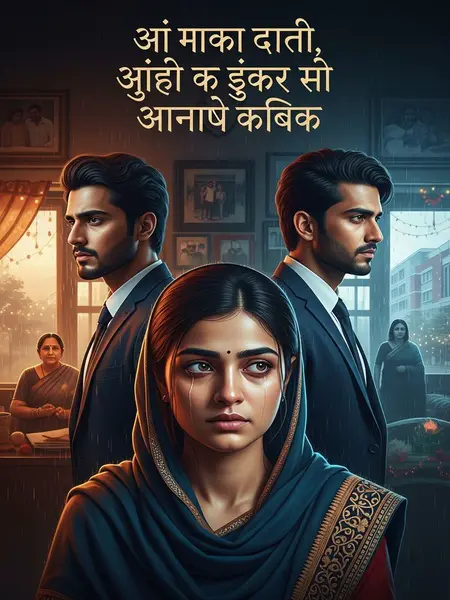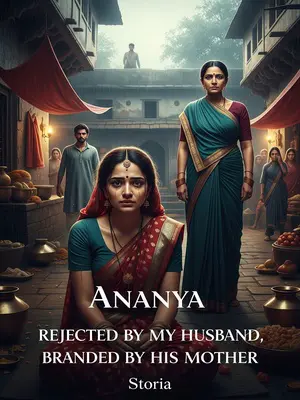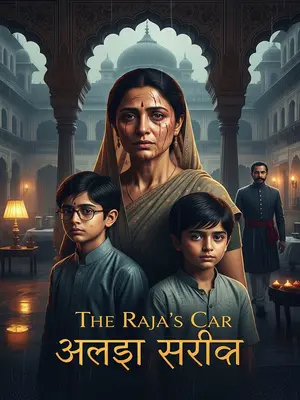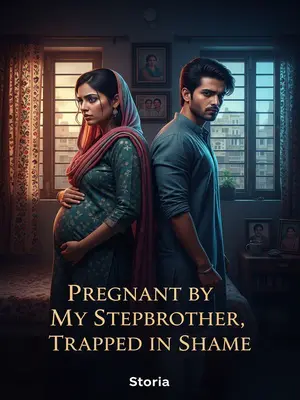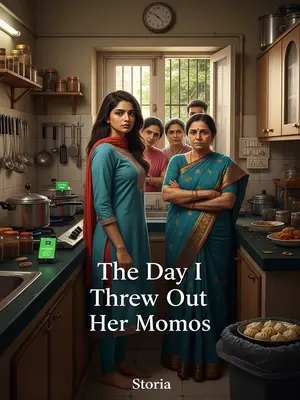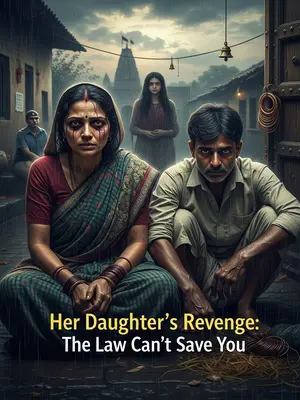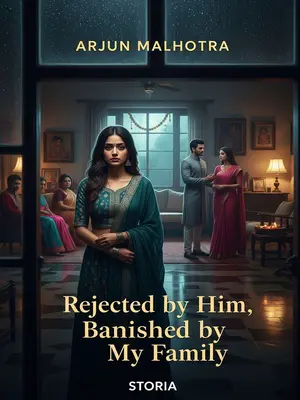Chapter 1: The Pool and the Storeroom
My mother remarried. At the wedding, she smiled at me, her voice honey-sweet as she coaxed, “Ananya, bolo ‘Papa’—say it, beta, just once for me.”
So I did. But the man’s son, Kabir, kicked me straight into the swimming pool, the world spinning blue and cold as I thrashed for air.
He leaned over the edge, looking down with a sneer, his hair slick from the monsoon humidity. “You think you deserve to be here?” he spat, his voice slicing through the din.
Behind him, the DJ’s speakers blasted loud Punjabi tracks, bass thumping through the marble floor. Relatives gossiped over the music, their laughter rising and falling. The air was heavy with the scent of marigold and rose petals, mingled with the sharp aroma of mutton biryani and oily samosas. My small hands clawed at the pool’s edge, sequins from my cheap lehenga scraping my wrists raw. The giggles of other children seemed to echo from far away, distant and mocking. In that instant, nothing mattered but the water burning my ears and Kabir’s cold words.
I was only seven then. My mother spun stories of Lucknow’s miracles, whispering to me at night while the oil lamp flickered and the fan threatened to die with every voltage drop. “Ananya, beta, bas acchi bacchi ban jao—Lucknow is magic, not like Kaveripur. Everything will be fine, just listen to Amma.” She would comb my hair with her fingers, her voice full of dreams.
I longed for those dreams. Back in our dusty village near Kaveripur, meat was a luxury, and a full glass of milk was a miracle in itself.
The memory of chewing dry rice with only salt for taste never left me. I’d watch the neighbours’ children gnaw on chicken legs, fighting over leftover fish. Sometimes, I’d beg Amma to let me sniff her hands after she cooked at a wedding feast, hoping the smell would fill my stomach.
But at her wedding, I almost drowned.
The laughter around the pool faded into a ringing silence as water filled my mouth. My arms flailed, desperate. Only Rupa, the cook’s daughter, saw me—but she looked away, afraid to draw attention. The sky was painted orange, the last of the sun watching silently.
When they finally yanked me out, my mother’s face twisted in anger, not concern. She scolded me for bringing shame. Without a word, she dragged me by my soaked plait, ignoring my shivers, and shoved me into a cramped, pitch-dark storeroom where old trunks and boxes crowded the corners. “Zara bhi tamasha mat karna, samjhi?” she snapped, her tone sharp as a slap she stopped herself from giving.
She and her new husband flirted in the hallway, their laughter floating through the crack beneath the door, while I lay curled on the cold floor, my stomach growling, tears hot on my cheeks.
I pressed my ear to the wooden door, catching the muffled sound of bangles, heels tapping the marble, and the strong smell of whisky seeping in through the cracks. The echo of their laughter twisted my hunger into something sharp and bitter.
A window creaked open. Someone threw a rock-hard stale roti inside. It landed with a dull thud near my feet. In the pitch dark, I fumbled for it, the edges rough against my palm. Outside, a cricket chirped, its rhythm uncaring.
Starving, I still remembered to whisper, “Thank you.”
My voice barely reached the door. In my village, you never forgot your manners—even when your stomach ached. Gratitude was a kind of insurance.
A cold laugh came from the other side: “That’s for the street dogs.”
The sneer burned worse than the hunger. My ears turned hot, but I hugged the roti close, pressing it to my lips as if it were a festival sweet. My heart made a promise to itself: One day, I’d have more than the leftovers meant for strays.
